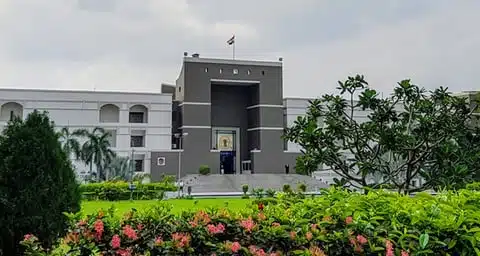
Table of Contents
Gujarat High Court Criticizes State for Delayed Appeal Filing After 5 Years
One of the recent judicial governments that have recently come to light is related to the action of Gujarat High Court which has condemned the delays of the State government as unconscionable in its delay to file an appeal which has created an important landmark’s case in legal responsibility along with administrative performance. The court’s criticism is focused on the fact that the State has a clear justification for a significant five-years break in the appeal, and this leads to some doubts on the work and activity of the state’s institutions.
This is actually a case of a legal matter that sought an appeal after the lower court had made a ruling on the matter with the State having been allowed to appeal. Appeals are an important component of the courts and may involve a review of legal decisions to detect mistakes in the course of legal processing. Nevertheless, due to the delay which the State has to face five years to file this appeal, have made the High Court to turn a blind eye on the matter gravely.
Even in its scolding, the Gujarat High Court could not hide its disappointment with the absence of a plausible explanation for the kind of delay that was seen in the case. This criticism raises an important concern that has to do with the effectiveness and hard working nature of state agencies that are supposed to uphold the core legal requirements in a bid to provide justice in a timely manner. This is why procedural rules such as time lines should be strictly followed as this is the way the High Court has demonstrated when hearing cases.
This delays in filing an appeal not only shows the incompetence of the administrative proceedings but does also affect the parties who are involved in the previous ruling of the court. Preliminary appeals are important in legal matters since it is important that justice is done n time not be denied to any party due to protracted legal process. It is, therefore, unlawful the five-year gap it takes as a cumulative period in not fulfilling these judicial responsibilities.
The patent lack of action from the Gujarat High Court is a stark reminder of the state machinery need for accountability. Finally, the court’s approach to look into the administrative delay and examine the justification of its extension highlights that such a decision or lack of action may stem from mere bureaucratic inactivity and for such a situation, there needs to be stronger safeguards to address such situations. The kind of delays it raises necessitates an analysis of the processes that occur in the State’s legal departments with the aim of addressing problems that lead to such delays.
Further, the presence of the High Court also means that the judiciary has a place in maintaining and setting out procedural devoutness or propriety. Thus, by nullifying the State actions the court emphasizes that everyone including the government departments and agencies should observe legal time and again. This is important in order to avoid compromising on the rule of law as well as justice due to unnecessary bureaucratic entanglements.
The case also poses questions on the efficiency of handling of legal issues in governmental corporations. Therefore, it underlines the importance of an organised attempt to make basic improvements to State legal departments with a view to increasing its capacity for being more effective and responsive. Such reforms may include providing enhanced training or education for legal personnel or providing superior mechanisms of supervision to detect and prevent legal holdups as well as the incorporation of information technology with a view of minimizing time consumed by legal practices.
In conclusion, it is possible to note that the decision made by the Gujarat High Court where the State was reprimanded for its five-years delay in filing an appeal constitutes an important judicial action meant to enhance the procedural discipline and responsibility. The ruling attached great significance to prompt delivery of the judgement even if it means that state organs need to work more efficiently and with as much openness as possible. This case therefore provides a check on the role of the judiciary in adorning the legal practices and the compliance to the ke of legal tenets by all players, including such government institutions in a professional and efficient manner.



